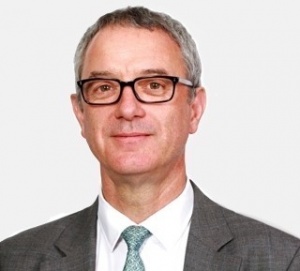Richard Whittam
( lawyer) | ||||||||||
|---|---|---|---|---|---|---|---|---|---|---|
 Credit: 2 Bedford Row Barristers | ||||||||||
| Alma mater | University College London | |||||||||
| Interests | ||||||||||
A prosecuting counsel experienced at handling major cases, with a track record of working for the UK intelligence agencies, security cleared "to the highest level". In June 2014, he claiming that "clearly exceptional circumstances" meant that a major terrorist case should be held in secret without the public being informed of the defendants' names.
| ||||||||||
Richard Whittam QC is First Senior Treasury Counsel at the Central Criminal Court with a track record of prosecuting major cases on behalf of the UK government. His particular focuses are “serious crime, fraud and terrorism with additional expertise in legal professional privilege, the Bribery Act, sports and regulatory law”.[1]
Background
Richard Whittam attended Marple Hall School, then got an LLB from University College London and was called to the bar in 1983.[2]
Cases
2 Bedford Row Barristers, of which he is a member, announces that Richard Whittam "is adept at handling cases that attract a high level of publicity".[1] He has had many notable cases, including:
- the appeal of George Davis in relation to his 1975 robbery conviction
- R v Ali and others, the 2011 Heathrow 'liquid bomb' plot
- R v Jacobs, the 2014 trial relating to the murder of PC Keith Blakelock (Broadwater Farm)
In 2002, Whittam was junior prosecuting counsel in the case of R v Burrell (former butler to Princess Diana), which collapsed just before Burrell was due to testify.[3]
He was prosecutor of Saajid Badat, the "Gloucester shoe bomber", who was sentenced for 13 years, later reduced to 11 years after making an agreement with the Crown Prosecution Service. Whittam stated that Badat "sees himself and others like him as victims manipulated and exploited by the likes of Osama Bin Laden and Khalid Sheikh Mohammed."[4][5]
Intelligence Connections
Whittam has worked with the UK intelligence agencies and other government agencies. 2 Bedford Row Barristers advertises that "he is security cleared to the highest level and has considerable experience in complex cases and leading teams of lawyers, investigators and regulators... He is experienced in Courts Martial trials, regulatory work and Official Secrets Act cases".[1]
Secret Trials in UK
Richard Whittam came to particular prominence in June 2014 for his involvement with the secret trial of alleged "terrorists" "AB" and "CD". The crown alleges that they may be deterred from going ahead with the prosecution if the trial is held in public and the identities of the defendants released, and that a public trial would interfere with the administration of justice. Therefore, they sought an order to ban the media from trial and to prevent disclosure of the defendants names.
Whittam presented the evidence in private to the court of appeal judges, Lord Justice Gross, Mr Justice Simon and Mr Justice Burnett, that the evidence on which the crown relied to argue for the secret trial could not be presented in open court. He argued that there were "clearly exceptional circumstances" which had led to the "exceptional procedures" that had been approved for the case.
“It is quite clear that there is jurisdiction for the defendants to be anonymous and there's jurisdiction for a court to sit in private. Whether or not it is appropriate to do so is realistically evidence-dependant.”
Richard Whittam (2014) [6]
References
- ↑ a b c http://www.2bedfordrow.co.uk/richard_whittam_qc_member/90
- ↑ http://www.legal500.com/firms/9410/offices/9410/lawyers/79039
- ↑ http://www.theguardian.com/uk/2002/nov/02/monarchy.jeevanvasagar1
- ↑ http://www.sacc.org.uk/articles/2014/planes-shoe-bombs-and-secrets-saajid-badat-story
- ↑ http://www.bbc.com/news/uk-17731821
- ↑ http://www.theguardian.com/law/2014/jun/04/major-terrorism-trial-secret-first-time-legal-history The Guardian